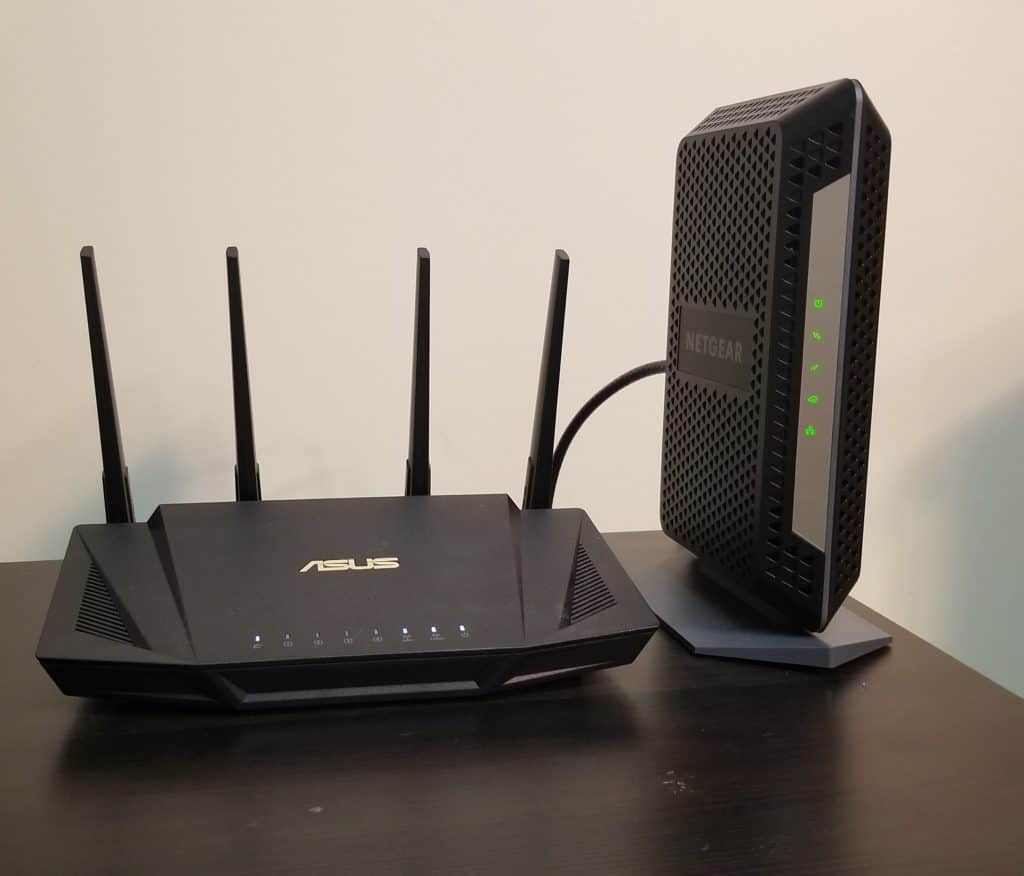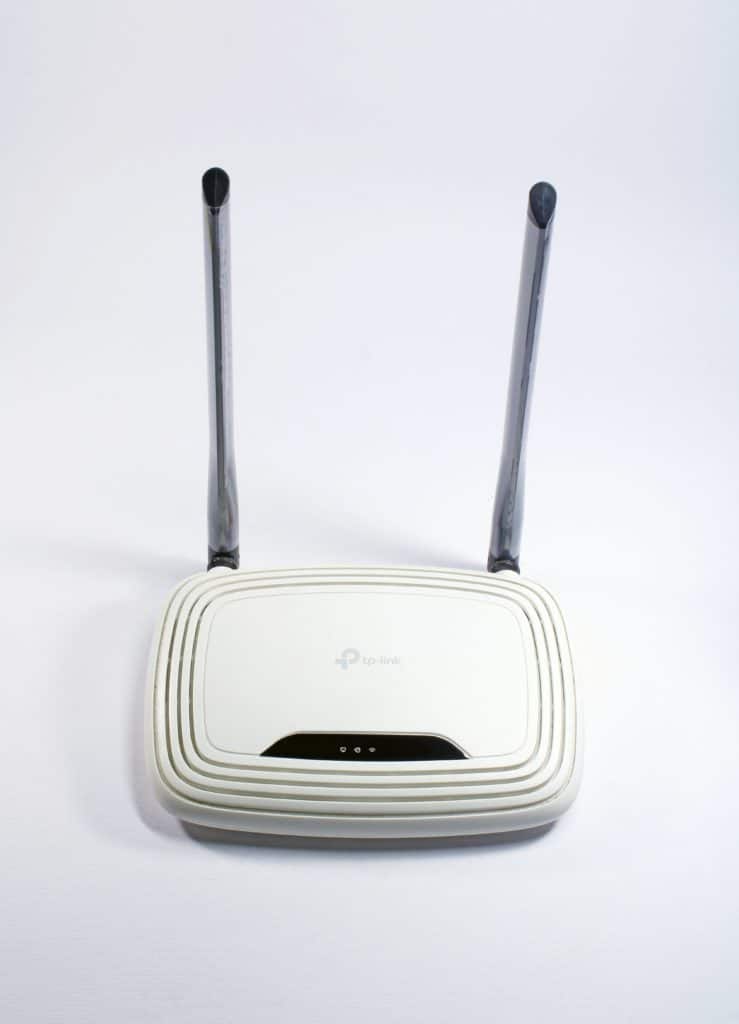Setting up a home network can be an intimidating endeavor for the uninitiated. The lingo, hardware, software, and set-up confuses a lot of people. Unfortunately, it causes them to doubt their ability to create a home network. Specifically, some people wonder if you need a router for internet. So what’s the truth?
You do not need a router for internet. However, routers significantly expand the capabilities of an internet connection by connecting dozens of devices to each other and the internet with Wi-Fi. Skipping the purchase of a router dramatically reduces the functionality of your internet connection.
Not everyone knows what routers do for a home network and how the help people and their devices stay connected to the web. I’ll walk you through the whole process and teach you how it all works.
What do you need for an internet connection?
Now that we know that a router isn’t mandatory to surf the web, we should start with establishing what you do need. An internet connection requires several components to function properly, so let’s take a look at each of them.
- Internet connection from you local Internet Service Provider. ISPs are local companies that sell internet access to consumers. They are commonly also cable and telephone providers, but ISP offerings vary by region and company. Common ISPs are Comcast, Mediacom, Charter, and AT&T.
- Modem. A modem is a piece of hardware that communicates with your ISP and delivers internet to your home, and ISPs require them for internet access. The main problem is that modems usually only communicate with one device via ethernet cable. While this may work well for homes with only one computer, it usually isn’t enough to create a home network.
- Computer. We all know what a computer is, so I won’t bore you with a lengthy explanation.
- Electricity. Of course, all of these things require electricity to work properly. You’ll need a means of supplying energy to these devices, and that electricity almost always comes from a common wall socket.
This brings me to my main point: you don’t need a router for internet. It is possible to just use one computer on an internet connection. However, a router increases the capabilities and functionality of a home network so much that you’d be a fool not to own and use one.
Modem vs Router. What’s the difference?

I wanted to take a quick minute to distinguish between a modem and a router, because it’s important to understand the difference.
| Device | Capability |
| Modem (right) | A modem brings internet into your house by communicating with your internet service provider, and it usually only connects to one device. |
| Router (left) | A router usually has multiple antennas, and it enables many devices to connect to it and share an internet connection by creating a Wi-Fi signal. |
Do you need a router for internet?
As I said before, you do not need a router for internet. However, adding a router adds so many benefits to your home, and just about everyone should have one.
What benefits do routers offer?
Routers offer tremendous value, and some of their benefits are:
- Routers take a single internet connection and creates Wi-Fi. Your modem brings internet into your house, and then the router makes a wireless network from which just about any device can connect. This enables desktops, laptops, cell phones, TVs, thermostats, coffee pots, printers, video game consoles, and just about any other device the ability to connect to the internet.
This is the main benefit of a router. It takes a single internet connection and let’s dozens of devices share it via Wi-Fi. - Routers bring internet to the whole house. If you only have a modem and one computer connected to it, then you’re unable to use the internet in your whole house. A router is basically a two-way antenna system that broadcasts internet in all directions. This enables you to connect to the internet in any room in the home.
- Routers let multiple devices share a printer. Wireless printers are an absolute must for areas where it’s appropriate for multiple people to share a printer. After the printer connects wirelessly to a router, any device can use it to print documents and photos. Since routers offer two-way communication, printers can send data back to any computer. That means that printers with scanners can send their scans back to any computer!
- Routers enable users to share storage devices. Let’s say you have an external hard drive full of movies, games, and old family photos. With the proper settings enabled, everyone in the same home can share all of the content using the router.
- Security. Since all of the data going in and out of the network passes through the router, the router can act as a filter for malware, viruses, and other undesirable bugs.
Can you connect to the internet without a router?
Routers are not required to connect to the internet. Home internet connections only require a modem, computer, electricity, and internet service from an ISP. However, a router greatly adds many great features to the capabilities of your home network.

What should I look for in a router?
The main feature you want to check on a router is its speed. Internet service providers measure and advertise their internet speeds in megabits per second and (increasingly as speeds increase) gigabits per second. Remember: megabits and megabytes and not the same thing. Likewise, gigabits and gigabytes aren’t the same thing. You can learn the important differences between these terms in my articles Megabits vs. Megabytes, and Gigabits vs. Gigabytes. I promise the information is super valuable to know before you drop money on a router!
The weakest link in a chain remains the best analogy for home network internet speed. Your internet speed can only go as fast as the slowest (weakest) link in the chain.
The links in the chain are:
| Device or service | Notes |
| Internet connection | It doesn’t matter how fast the other devices on your network can process data. You cannot improve slow internet coming into your house with fast devices devices. |
| Modem | Google the model number of your modem, and you’ll find out the maximum speed of your modem. |
| Router | Again, Google the model number of your router, and you can easily find the basic specifications of your router. This can tell you if your router needs replacement. |
| Devices | Internet-enabled devices have limits, and they can only go as fast as their components will let them. |
How can I find the speed of my router?
Do a Google search for the model number of your router, and you’ll likely find a letter associated with the number 802.11. This letter signifies the generation of the Wi-Fi router. Here’s a handy table explaining the speeds and generations of Wi-Fi standards created by the Institute of Electrical and Electronics Engineers. Generally speaking, new routers are backwards-compatible with older Wi-Fi generations. This means that a new router will work with your old computer.
| Wi-Fi Generation | Maximum Data Rate | Frequency | Year |
| 802.11A | 54 Mbps | 5Ghz | 1999 |
| 802.11B | 11 Mbps | 2.4Ghz | 1999 |
| 802.11G | 54 Mbps | 2.4Ghz | 2003 |
| 802.11N | 600 Mbps | 2.4 & 5Ghz | 2009 |
| 802.11AC | 1.3 Gbps | 2.4 & 5Ghz | 2014 |
| 802.11AX | 10-12 Gbps | 2.4 & 5Ghz | 2019 |
If you’re curious about the role routers play in internet speeds within a home network, check out my article titled Do Routers Affect Internet Speeds?
Final thoughts
It’s true that you don’t need a router to access the internet. However, just about everyone would benefit from the features and capabilities of a good Wi-Fi router. I hope you found some value in this article. Take care!

